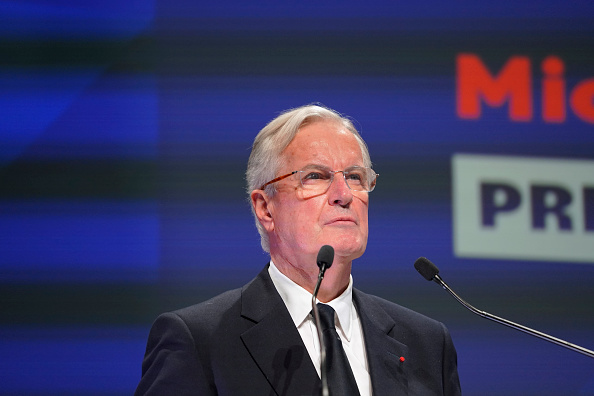French lawmakers will vote on Wednesday on no-confidence motions which are all but certain to oust the fragile coalition of Prime Minister Michel Barnier, deepening the political crisis in the euro zone’s second-largest economy.
Barring a last-minute surprise, Barnier’s will be the first French government to be forced out by a no-confidence vote in more than 60 years, at a time when the country is struggling to tame a massive budget deficit.
The debate is due to start at 4 p.m. (1500 GMT), with voting expected about three hours later, parliament officials said. President Emmanuel Macron is set to return to France from a state visit to Saudi Arabia during the day.
The government’s collapse would leave a hole at the heart of Europe, with Germany also in election mode, weeks ahead of U.S. President-elect Donald Trump re-entering the White House.
In a primetime TV interview on Tuesday night, Barnier said he remained open to budget talks with Marine Le Pen’s far-right National Rally (RN) and other parties, and expressed hope he could survive the no-confidence vote.
“It depends on the deputies who each have a share of responsibility before the French, before the voters, and before France too, which is in a rather serious moment,” he said.
Barnier warned there was “a lot of tension … a lot of feelings of injustice, a lot of feelings of anger,” in the air. “We must be careful.”
However, he rejected the idea, expressed by some members of his own centre-right party, that Macron should resign to unblock the crisis, calling the president “one of the guarantors of the stability of our country.”
Macron, on a visit to Saudi Arabia, was asked about mounting speculation he may not complete his mandate.
“I will honour this trust with all my energy until the last second,” he was quoted as saying by French media. His term runs until mid-2027 and he cannot be forced out by parliament.
Budget Minister Laurent Saint-Martin said bringing down the government and its budget plans would mean a larger deficit and more instability.
The risk premium investors demand to hold French government debt rather than German Bunds was close to its highest level in more than 12 years on Tuesday.
After weeks of tension, the political crisis came to a head when Barnier said he would try to ram the social security part of the budget through parliament without a vote after failing to win support from the RN.
Barnier’s entourage and Le Pen’s camp, which prop up the minority coalition, each blamed the other.
“Censuring the budget is for us the only way the constitution gives us to protect the French,” Le Pen told reporters as she arrived in parliament.
The left and the far right combined have enough votes to topple Barnier, and Le Pen has confirmed that her party would vote for a left-wing alliance’s no-confidence bill. The RN’s own no-confidence motion would not be backed by enough lawmakers.
RISK FOR LE PEN
Barnier’s draft budget sought to cut the fiscal deficit, which is projected to exceed 6% of national output this year, with 60 billion euros ($63 billion) in tax hikes and spending cuts. It aimed to drag the deficit down to 5% next year, with ratings agencies keeping a close eye on progress.
If the no-confidence vote does go through, Macron could ask Barnier to stay on in a caretaker role as he seeks a new prime minister, which could well happen only next year.
As far as the budget is concerned, if parliament has not adopted it by Dec. 20, the caretaker government could propose emergency legislation to roll over spending limits and tax provisions from this year. But that would mean that savings measures Barnier had planned would fall by the wayside.
The upheaval is not without risk for Le Pen, who has for years sought to convince voters that she can offer stability.
An Ipsos survey last month showed that some 50% of voters still consider the RN as dangerous for democracy – albeit 11 points lower than in 2020.
A poll by Odoxa showed that 59% of RN voters prefer Jordan Bardella, who is now party chief, to Le Pen, who is awaiting judgment in a trial over alleged misuse of EU funds. That could see her barred for running for public office for five years.
She denies any wrongdoing.
(Reuters)




















